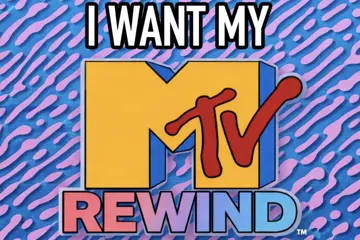As Apple's iTunes celebrated its tenth anniversary week, theMusic.com.au asked some of the music industry's top powerbrokers and taste makers to get their opinion on the online retail juggernauts.
Speaking to label heads, ARIA's CEO and a leading journalist the general consensus was that the service has changed the industry for the better – even if the pricing could be improved.
What's wrong with iTunes? The latest design, for one…
What do you think iTunes has done well in the last ten years?
Warren Costello, Liberation Managing Director: “That's easy. They launched with the perfect marriage of hardware and software in the iPod, the first easy to use music player for dummies. iTunes is software for that and works seamlessly with it. No-one else had both, or has to this day for that matter and it's now just the habit. The pricing is also right.”
Sebastian Chase, CEO MGM: “I'm a fan of it, to be honest. They've supplied a global retail outlet that has understanding of how rights and territories work within the music business. Right from the start they understood that releases could be released by different labels in different territories, which is important to us. It's pretty impressive; I've always regarded them as a really important part of the music infrastructure. The music is affordable, but it still has value – they're not giving it away for nothing.”
Don't miss a beat with our FREE daily newsletter
Dan Rosen, CEO ARIA & PPCA: “iTunes has played an important role in developing the digital music market thereby ensuring artists are rewarded for their creative work.”
Scot Crawford, GM PledgeMusic: “They have owned the market. To come from a position where digital revenue (as we knew it) ten years ago was driven through ringtones, to them dominating the digital music market through great hardware and software innovation with superior customer satisfaction for the majority of the past ten years, and then the diversification through apps/visual (iPad, iPod, Apple TV and other hardware) they have been the key player in their market segment. I would take my hat off to iTunes in regards to the way they have supported and worked with established music companies during what has been a tough period of change for allot of well established entertainment businesses. Whether you like it or not technology has flooded the music business over the past ten years and in a lot of regards iTunes' approach has been supportive of a changing business in a changing market.”
James McInnes, Director Plastic World: “Ten years ago the music industry pooped itself after programs and networks like Napster, WinMX, Kazaa, Soulseek and many more became mainstream. They made buying available to everyone, quickly and for most people at a fair price – so they nailed that.”
Cameron Adams, National Music Writer News Limited: “iTunes arrived at the perfect time. People have shorter attention spans and can now be their own radio stations. iTunes is fast and efficient and very user-friendly. iTunes is instant gratification. Programs like Shazam mean you can hear, identify and purchase a random song in literally seconds. Like a song you hear on a TV ad? You can buy it before the ad break has even finished, no waiting to find it in a store tomorrow. It's also very cleverly marketed. They've made the release of new songs and albums by big name acts – or hot young acts – an event again. And some of the smoke and mirrors have been removed. We can see just how popular songs on TV shows like The Voice are instantly by how high they are in the download chart. No more waiting around for a weekly chart, now we get an hourly one that is an instant gauge of what songs people are willing to pay for. iTunes also taps into both serious music fans – completists need the iTunes bonus tracks – and also caters for the casual purchaser. Options like 'complete my album' and pre-ordering are smart, modern twists on old-school consumer service. And being part of an omnipresent brand like Apple means artists flock to you (even if it takes a while, like the Beatles or AC/DC) because you're seen as the leader in digital music. And isn't it nice to see people everywhere walking around listening to music.”
What negative impact do you think iTunes has had, if any?
Costello: “The negative impact is obviously the reduction in sales of the physical format and the impact on brick and mortar music stores. This has been much more dramatic in some Western markets more so than in Australia where we still have a fairly robust music retail sector.”
Chase: “I would have liked little bit more variety in the ability to choose pricing zones. Some records, particularly from obscure artists struggle to compete with the artists who do well in the mainstream, but it's a small point.”
Rosen: “As an innovator in the digital space, the impact of iTunes has been overwhelmingly positive for our industry.”
Crawford: “If you were a pessimist about where music was heading you could name a number of things, but I don't think that anything iTunes has done has directly had a negative impact. I think the way iTunes has lead the market in regards to the way people consume music has just been one part in the whole of how people interact with recorded music and has been influential in the different trends in which we are seeing that people want to receive recordings – whether through backing a crowd funding campaign, buying vinyl, cassettes or hitting Bandcamp.”
McInnes: “Not sure!”
Adams: “Obviously it's impacted terribly on physical CD stores. It's no accident in the last ten years since iTunes has grown we've seen chains like Virgin and HMV disappear and CDs banished to the back of JB Hi-Fi behind the DVDs, video games and computer products. People still buy physical CDs but from department stores. Then there's the argument on how much money goes to the artist and how much to Apple when you buy a song on iTunes. And audio boffins hate the compression on MP3 – the rise of vinyl (again) is surely linked to the rise of digital music files.”
In your opinion, where should iTunes be heading in the next few years?
Costello: “Digital radio/subscription is no doubt on the horizon to complement their current offering. They obviously won't be the first, but could well target the folk who have no idea these service exist plus all the others who want everything under one roof.”
Chase: “They're just gonna keep going doing what they're doing. I can't see them not being a part of the industry… At some point they'll need to move into a streaming service as well as offering a la carte downloads.”
Rosen: “iTunes has long been one of the local recorded music industry's greatest supporters and we look forward to continuing that partnership.”
Crawford: “To be competitive there will obviously be a streaming option. Having just entered the world of band management and working on a totally indie initiative, it is interesting to see what revenues you can receive from direct physical, and then intermediary to digitally platforms. Streaming is actually surprising in regards to revenue on an international basis, and once streaming essentially takes more [market] share from the traditional radio broadcasting market that will be a great option for allot of artists broader than just your general commercial acts. I look at Amazon and see some great distribution potential there still through mp3, the physical digital offering and the general distribution offering, but I would be surprised to see Apple heading down that road. I think the next few years for iTunes will be heavily dominated by the visual side of the catalogue as IPTV becomes a more general platform here and the TV broadcasting environment drastically changes.”
McInnes: “Another redesign! I don't know what they were thinking with iTunes 11, worst version of iTunes in the ten years it had been alive! I'd love to see iTunes find a clever way to integrate music, video and TV subscriptions services, kind of like gluing all the best bits of Spotify, Hulu and Netflix into one. That and making Genius even more buff.”
Adams: “The Australian iTunes store needs to get its pricing inline with the rest of the world. Consumers are being charged nearly double what Americans pay for a song. And digital music was meant to make albums cheaper as you cut out the cost of physically producing a CD and the costs involved with shipping it to a retail store and the overheads of staff etc. But often you can buy a CD cheaper than JB than on iTunes. Which is competitive for music fans but still doesn't make sense. And bring back the old iTunes display, the new one sucks. If it ain't broke…”
Have your say in the comments: What's your thoughts on iTunes?















